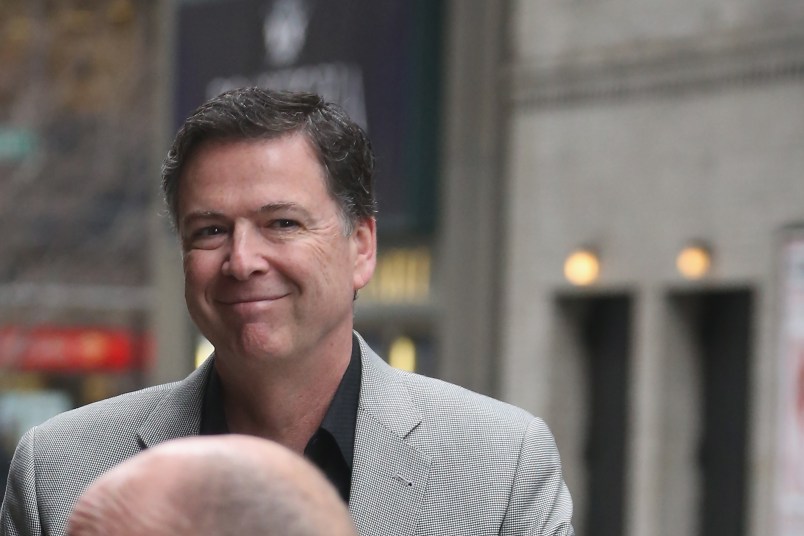Former FBI Director Jim Comey violated bureau rules and procedures in his handling of certain memos he drafted after his May 2017 firing, the Justice Department Inspector General said in a report released on Thursday.
The report said that both the memo he had handed over to a friend to be leaked to the press, as well as memos Comey shared with his attorneys, were improperly transmitted without seeking authorization from the FBI.
However, the Inspector General’s investigation found no evidence that “Comey or his attorneys released any of the classified information contained in any of the memos to members of the media.”
In the report, Inspector General Michael Horowitz said the violations came regardless of the memos’ classification levels because Comey failed to release the memos to the FBI after he was fired and failed to ask permission to retain them instead.
Comey tweeted a response after the report’s release, saying that he didn’t “need a public apology from those who defamed me, but a quick message with a ‘sorry we lied about you’ would be nice.”
DOJ IG "found no evidence that Comey or his attorneys released any of the classified information contained in any of the memos to members of the media." I don’t need a public apology from those who defamed me, but a quick message with a “sorry we lied about you” would be nice.
— James Comey (@Comey) August 29, 2019
The Inspector General also knocked Comey for not informing the FBI that he had shared a memo with his attorneys when the FBI informed him that parts of the memo were being retroactively classified.
“The FBI did not learn that Comey had shared any of the Memos with anyone
outside the FBI until Comey’s June 8, 2017 congressional testimony,” the report said
A point of contention in the report is whether the memos were official FBI documents. While Comey shared certain memos with a small group of people at the Justice Department, he also stored copies of some of them in a personal safe at home.
Comey told IG investigators that after he was fird he never told anyone at the FBI that some of the memos remained in the safe and that it “never would’ve occurred to” to him that he should give them back to the FBI. He equated them to personal documents like a passport or a will.
The top FBI officials the inspector general interviewed for the probe all said they considered the memos official records. The officials were not aware of the extra set that were in his home safe and when FBI agents initially went to Comey’s home, after he was fired, to pick up the government materials he stored there, they were not told by Comey about the memos in the safe.
The Inspector General ultimately disagreed with Comey’s claims that the memos were essentially personal documents.
“Comey’s characterization of the Memos as personal records finds no support in the law and is wholly incompatible with the plain language of the statutes, regulations, and policies defining Federal records, and the terms of Comey’s FBI Employment Agreement,” the report said.
Read the report here:






